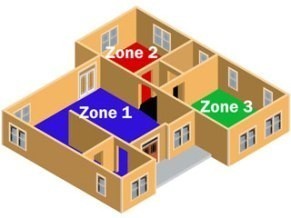
Sunset Air, INC is the leading HVAC & Energy Services contractor in the South Puget Sound area. Sunset Air, INC is a second generation family owned business that was established in 1976 and has been growing strong for nearly 40 years. At Sunset Air, INC we operate in a culture that values our employees, our customers and our community. We provide our employees with continuous industry training & education, career development & planning and excellent pay and benefits.
Sunset Air, INC’s business is currently growing rapidly. We are looking for customer service oriented Service and Maintenance Technicians to join our team in the Residential Department.
General Job Description: The essential function of the Service Technician or Maintenance Technician is to provide quality HVAC repair and maintenance services to our customers.
Skills / Requirements:
- 4+ years of experience in Residential HVAC Service or Maintenance
- Excellent Customer Service skills and Communication skills
- Strong troubleshooting & diagnostic skills and knowledge of gas furnaces, heat pumps and electric furnaces
- Experience with change out / installation of parts in furnaces & heat pumps
- Must be able to successfully pass a driving record, background check & drug test
- Ethical business practices and a high regard for company safety policies
- Must be able to drive a company vehicle and lift or move 25 lbs. frequently and up to 50 lbs. occasionally
- Must be able to climb and work off ladders occasionally, and squat, crawl, crouch, kneel and bend frequently.
Additional Qualifications
- EPA Certified
- 06A Electrical License or training card
- NATE Certification (preferred – not required)
- Certificate of training from technical school a plus (not required)
Additional Compensation: Included with the excellent pay, we also offer excellent benefits, including company paid healthcare insurance (medical, dental & vision) for employees and their qualifying dependents. Employees also receive disability and life insurance benefits paid by the company. The company also provides employees in this position with a company vehicle, fuel card, smart phone, power tools, uniforms and full-time year around work.
If you are interested in this position please apply in one of the following ways:
E-mail your resume to hr@sunsetair.com
Complete an application at our main office: 5210 Lacey Blvd SE Lacey, WA 98503
Complete the submission form on our website: www.sunsetair.com/contact/careers
Contact our Human Resources Department for additional information or with questions at 360-923-1244 Ext: 155





